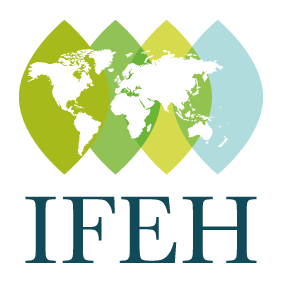WHY IS IT WORTH IT? SHARING LESSONS AND EXPERIENCES: ADAPTATION AND RESILIENCE OF ENVIRONMENTAL HEALTH PRACTITIONERS IN IMPLEMENTING KEY INTERVENTION STRATEGIES DURING COVID-19 PANDEMIC: CAPE TOWN PERSPECTIVE: SOUTH AFRICA
Keywords:
Adaptation, Resilience, Innovation, COVID-19Abstract
Background: The COVID-19 pandemic has had a disastrous impact world over. Several countries have struggled to effectively respond to the challenges posed by this disease. In responding to COVID 19 pandemic, Environmental Health Practitioners (EHP’s) in Cape Town had to embark on unchartered territories with limited information and expertise at their disposal to deal with the pandemic. In this context, they had to adapt and be resilient in the face of adversity in order to cope and thrive with the new challenges of COVID-19.
However, this presented an opportunity for EHP’s to learn on how to overcome the challenges posed by the emerging diseases. The broad scope of practice of Environmental Health Practitioners inter alia surveillance and prevention of communicable diseases, health surveillance of premises, monitoring of port health, and management and control of the disposal of the dead contributed immensely in combatting the scourge of the disease.
The aim of this article is to demonstrate the adaptability, resilience, innovation, and flexibility of this profession in dealing with a pandemic. This will lay the groundwork for future research on environmental health. It is worth sharing these lessons and experiences to underscore the value of this profession within the health system and debunk the discourse that this is an invincible profession.
Aim: The aim of this article is to demonstrate the adaptability, resilience, innovation, and flexibility of this profession in dealing with a pandemic. and demonstrate its value in the face of adversities. This will lay the groundwork for future research on environmental health. It is worth sharing these lessons and experiences to underscore the value of this profession within the health system and debunk the discourse that this is an invincible profession.
Methods: This is a descriptive analysis and observation of the role of Environmental Health Practitioners in combatting COVID-19 pandemic.
Conclusion(s): Several countries have been severely affected by COVID-19, as a result a high number of people have died because of this disease. Countries were compelled to come up with innovative ways to manage and control the spread of this disease. This presented an opportune time for EHP’s to adapt quickly and bring about innovation in dealing with the pandemic, for example, handling of the human remain which required stringent precautions to be followed by the communities as the disease is highly contagious. Throughout the pandemic, EHP’s had to adapt and be resilient by embracing new business models to minimize the spread of infections.
A positive correlation was observed between the two concepts as they are interwinned. Adaptive leadership needs a degree of resilience which needs continous revisiting and adjusting responses to the pandemic. Invariably, dealing with COVID-19 posed serious challenges amongst the EHP’s due to the complex nature of the disease. EHP’s were equally affected by the disease but they were inevitably obliged to adapt to the conditions imposed by the environment they find themselves. However, this proved that adaptation and resilience can co-exist to enable one to thrive under difficult circumstances. Safeguarding the health of the public during the period of the pandemic was a defining moment for the EHPs as they learnt new ideas and actions to fight the pandemic.
Presenter e-mail: andile.zimba@capetown.gov.za


